55 Fun and Interesting Facts About Bulgaria (From a Local)
Visiting Bulgaria soon? You better go prepared!
My country takes pride in its rich history, abundant landmarks, and unique traditions.
On this list, you’ll find 55 fun and interesting facts about Bulgaria.
As a Bulgarian, I’d be honored to be your virtual guide. Let me show you the UNESCO World Heritage sites, introduce you to Bulgarian cuisine, and prepare you for any cultural surprises you might encounter.
Ready to dive in?
Let’s explore!
Disclaimer: This post contains affiliate links. If you purchase something through one of them, I may receive a small commission at no extra cost to you. Thank you for helping me create free content on this website!
Where Is Bulgaria?
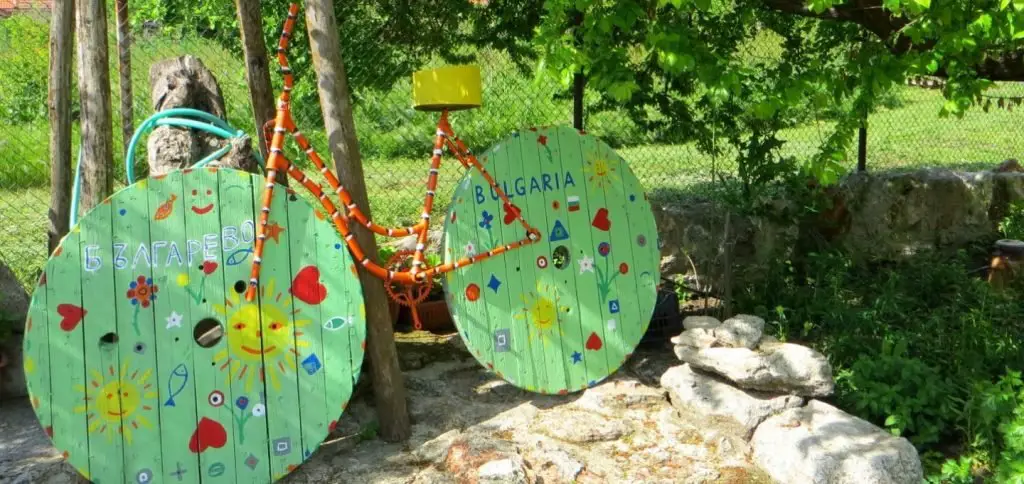
Bulgaria is located in southeast Europe on the Balkan Peninsula. Its neighboring countries are Greece and Turkey to the south, Serbia and North Macedonia to the west, and Romania to the north.
The Black Sea forms Bulgaria’s eastern border, and the majority of its northern border consists of the Danube River.
With a size of approximately 111,000 km2 (~43,000 sq. mi), Bulgaria is as big as Ohio, slightly smaller than neighboring Greece, somewhere between the sizes of North and South Korea, and about half the size of Uganda.
It’s important to know that traveling in Bulgaria is safe. However, don’t wait too long to visit this hidden gem as mass tourism is slowly taking over this part of Europe.
The Most Important Facts About Bulgaria for Travelers
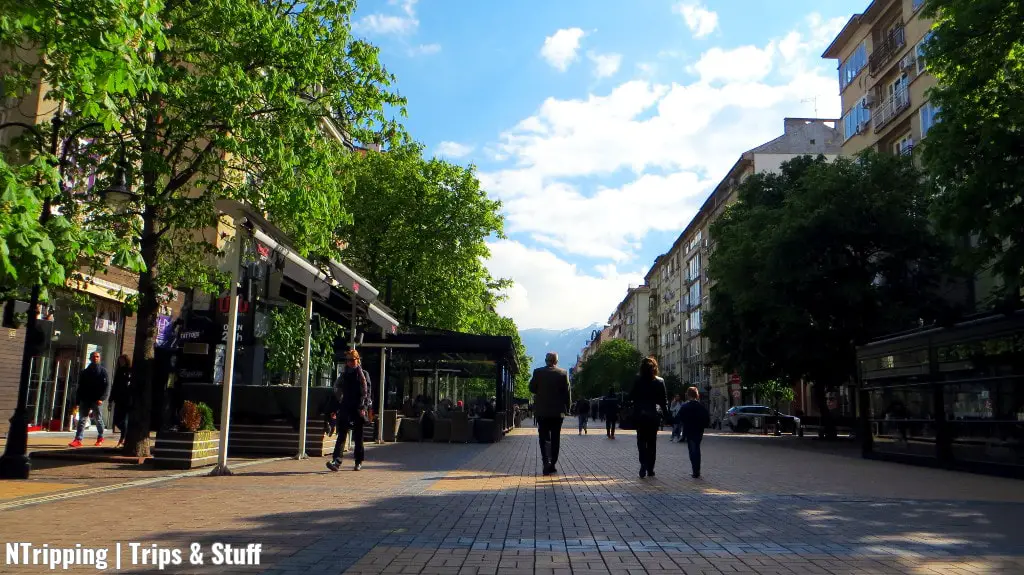
In this section, I’ll share with you the most important facts about Bulgaria for you as a traveler.
- Bulgaria is a member of the European Union. Since 2007, Bulgaria is a part of the EU. However, the country is still not a member of the Schengen Area. Despite this fact, if you hold a Schengen visa, you can visit Bulgaria for up to 90 days. You’ll find the complete list of visa requirements on the website of the Bulgarian Ministry of Foreign Affairs.
- The country is not a part of the eurozone. Bulgaria’s currency remains the Bulgarian lev (BGN). It’s tied to the euro, so calculating prices is quite easy. The official exchange rate is €1.00 = BGN1.95 (approximately $1.00 = BGN1.80).
- The mountain range, which gave the Balkans its name, runs through the whole width of Bulgaria. The former name of what we now call Stara Planina Mountain – literally meaning Old Mountain – was the Balkan Mountain. The mountain range stretches from Serbia, divides Bulgaria into Northern and Southern, and kisses the Black Sea at Cape Emine.
- Bulgaria uses the Cyrillic alphabet. Since Bulgaria joined the European Union in 2007, the Cyrillic alphabet became the EU’s third official alphabet. Throughout the world, approximately 250 million people and 12 countries use a version of the script.
- The highest Bulgarian mountain, Rila Mountain, is also the highest in the Balkans. Its tallest peak – Musala (2,925 m / 9,596 ft.) – is higher than the Greek Mount Olympus. The third-highest peak on the peninsula is also in Bulgaria. Having in mind this fact about Bulgaria, I bet you can already imagine all the wonderful hikes you can do in the country.
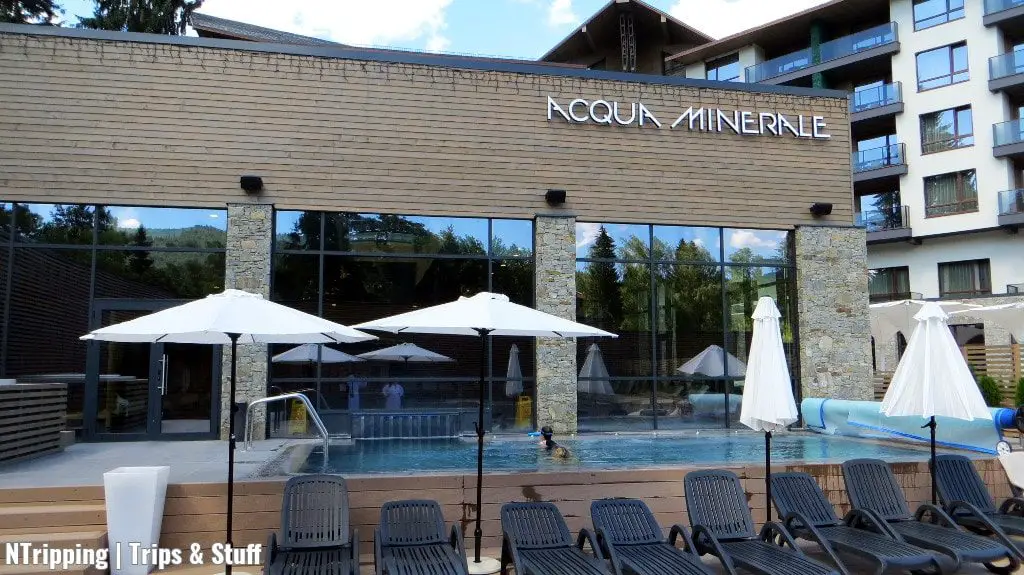
- Bulgaria has the second-highest number of natural mineral springs in Europe. The only European country that boasts more mineral waters than Bulgaria is Iceland. Worldwide, Bulgaria occupies the third spot after Japan. So, when visiting, you need to experience the healing powers of its thermal baths. I recommend going to Velingrad, the SPA Capital of the Balkans, and staying in one of the top SPA hotels in Bulgaria.
- Bulgarians speak Bulgarian. It’s the only official language of the country. This fact comes as a surprise to many foreigners. After almost five centuries under the Ottoman Empire’s rule, Bulgaria gained independence in 1908. Despite the different religions, traditions, and languages of Bulgarians and Ottomans, the Bulgarian spirit and language survived.
- Sofia, the capital of Bulgaria, is situated just 15 minutes away from Vitosha Mountain. Very few world capitals have the advantage of a mountain at its doorstep. Visiting Vitosha is one of my favorite day trips from Sofia.
- Bulgaria boasts incredible biodiversity. It’s one of the few countries that can surprise you not only with beautiful scenery but also with rare animal and plant species. Some of them have long vanished in other parts of Europe.
Fun and Interesting Facts About Bulgaria
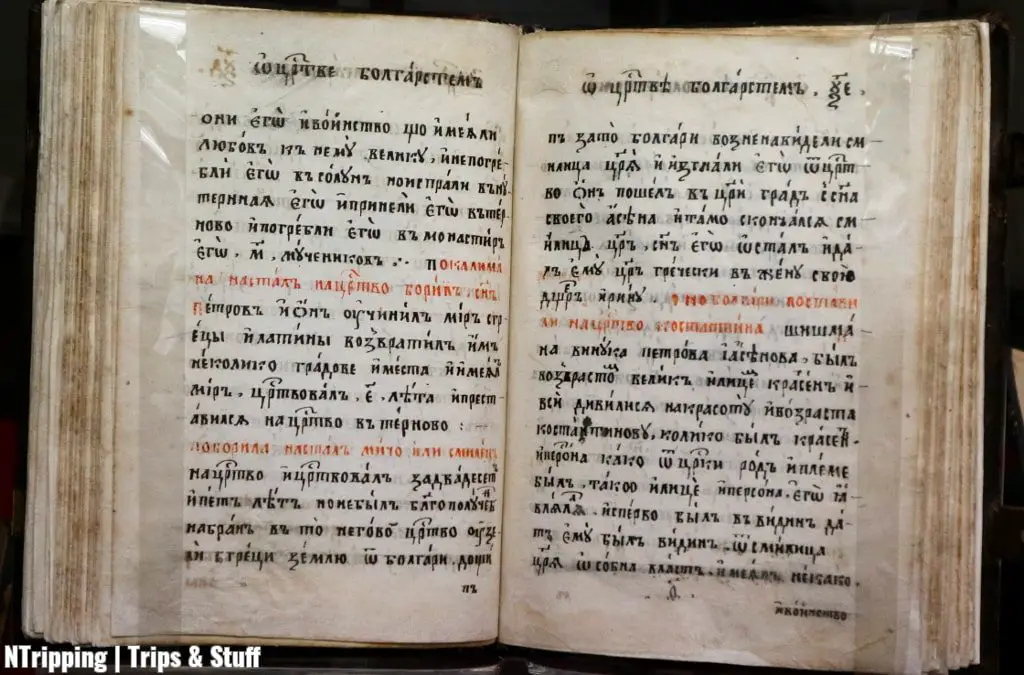
Below, you’ll find the most fun and interesting facts about Bulgaria. Some of them will make you scratch your head really hard.
- Two Bulgarian scholars, the Saints Cyril and Methodius, invented the Cyrillic alphabet. Interestingly, their version of the script is not in use today. The brothers wrote an alphabet called glagolitsa, to visually represent the Slavic languages. Their creation ensured that each sound in the spoken languages would have a visual representation. However, the script was too complex for ordinary folks to learn. Their students carried on the work and simplified the alphabet.
- Shaking and nodding your head mean different things in Bulgaria. An unexplainable communications fact about Bulgaria is that we shake our heads for “yes”, and nod for “no”. Don’t ask why, just go with the flow :)
- Bulgarians celebrate name’s days just as much as their birthdays. In addition to birthday celebrations, we gather family and friends for our “name days” as well. These are the days when the saint or martyr with your name is honored by the church. For many Bulgarians, the name day is a larger celebration than their birthday.
- Bulgarians spill water in front of their houses for good luck. When a member of the family leaves home on a special event, e.g. the first day of school, graduation, an important exam, or their wedding day, the other members of the family spill water in front of the doorstep. They then wish that “his/her success boat floats in calm waters” (roughly translated). This is the Bulgarian equivalent of wishing someone to “break a leg”.
- The ancient Bulgarian calendar is the most accurate in the world. In 1976, UNESCO declared the solar calendar used by the proto-Bulgarians as the most accurate calendar system ever created.
Facts About Famous Bulgarian Landmarks
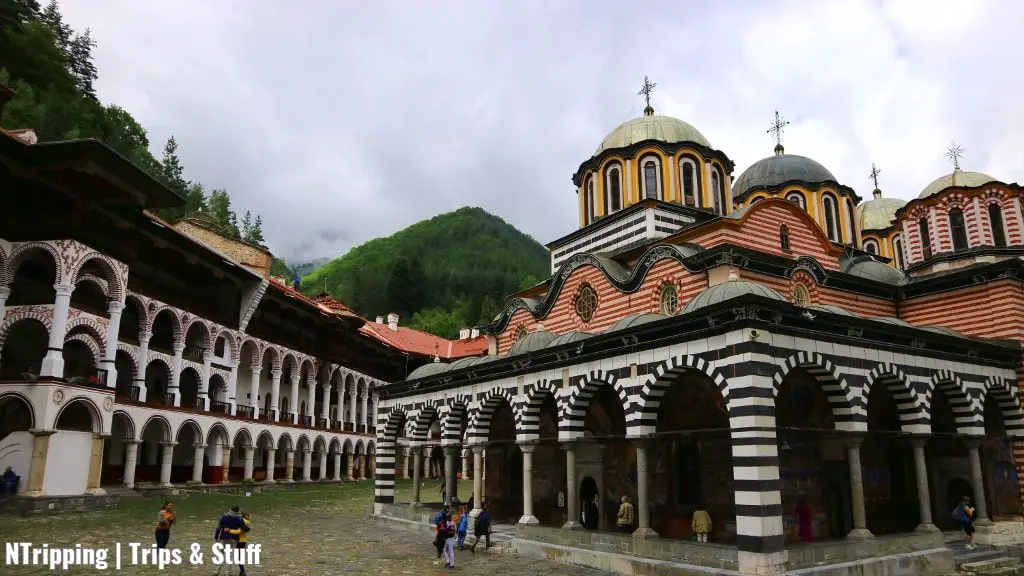
The country’s natural and historical landmarks will enchant and spellbind you. Let’s find out the most fascinating facts about Bulgaria’s landmarks:
- Bulgaria has ten sites on the UNESCO World Heritage List. These include seven cultural and three natural sites:
- Boyana Church near Sofia
- Rila Monastery
- Madara Rider
- The Thracian Tomb of Kazanlak
- The Thracian Tomb of Sveshtari
- The Rock-Hewn Churches of Ivanovo
- The Ancient City of Nessebar
- Pirin National Park
- Srebarna Nature Reserve
- Ancient and Primeval Beech Forests of the Carpathians and Other Regions of Europe
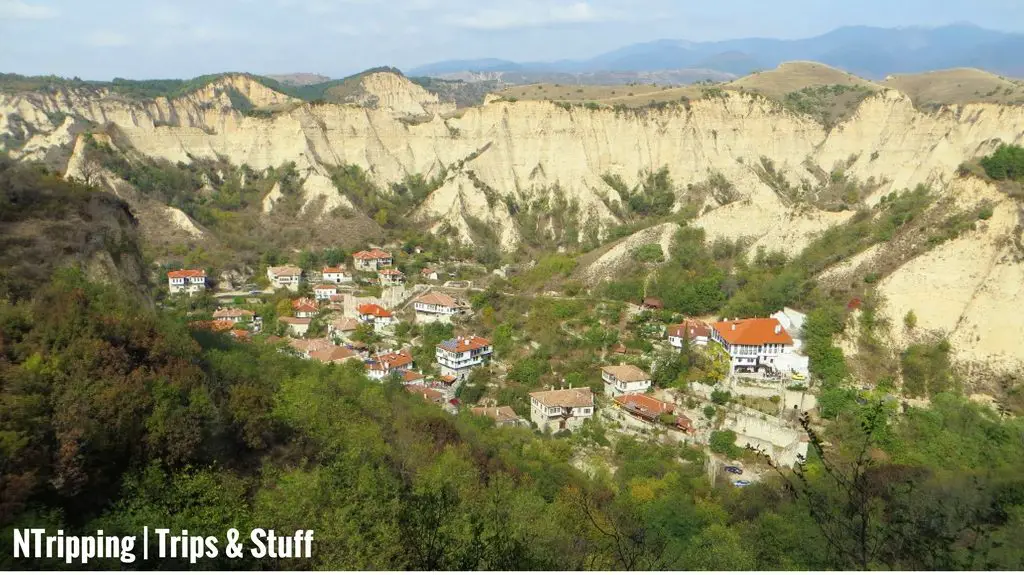
- Another 16 Bulgarian landmarks await to join the UNESCO World Heritage List. On the UNESCO Tentative List you will find:
- The neolithic dwellings near Stara Zagora
- The Magura Cave
- The ancient town of Nicopolis ad Istrum
- The ancient tomb of Silistra
- Bachkovo Monastery
- Melnik and Rozhen Monastery
- Roussensky Lom National Park
- The Ancient Plovdiv
- The Thracian Tomb of Alexandrovo
- Vratsa Karst Nature Reserve
- The Belogradchik Rocks
- Central Balkan National Park
- Pobiti Kamani Natural Monument
- The Thracian City of Seuthopolis
- Frontiers of the Roman Empire and the Danube Limes
- Bishop’s Basilica and Late-Antique Mosaics of Philippopolis
- Alexander Nevsky Cathedral is one of the largest East Orthodox cathedrals in the world. Built in 1912 in the New Byzantine architectural style, the temple is one of the attractions Sofia is best known for. The cathedral strikes with its impressive golden domes.
- The Rose Valley in Bulgaria produces approximately half of the world’s rose oil. The fragrant oil is extracted from a species called rosa damascena (Damask rose). It is an essential component in the cosmetics industry. The Bulgarian Rose Oil is a Protected Geographical Indication.
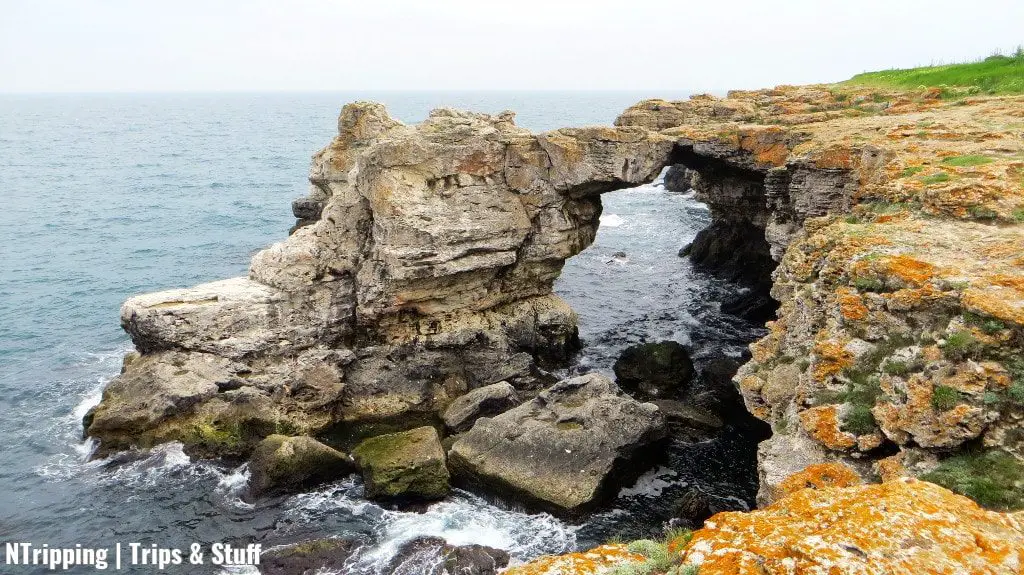
- The Bulgarian Black Sea coast features pristine sandy beaches and high-rising rugged cliffs. The coast is also home to incredible biodiversity, staggering rock formations, ancient towns, and the fertile Dobrudja Steppe.
- Bulgaria enchants with mind-boggling rock formations. Prepare your eyes for unbelievable sights that rival the rugged coast of Ireland, for example. Here are the most famous rock formations you should see in Bulgaria:
- Belogradchik Rocks
- The Wonderful Bridges
- The Wedding
- Tyulenovo Arch
- Pobiti Kamani
- The Ancient Theater of Plovdiv is one of the best-preserved Roman theatres in the world. The attraction is located in the city’s Old Town. The arena dates back to the 1st century AD and is still used today. It can host up to 7,000 spectators.
- Bulgaria boasts tens of thousands of Thracian burial sites. According to archaeologists, the number might be as high as 60,000. Only about a thousand of them are excavated and researched. Dozens of Thracian tombs are open to visitors. You’ll find the most imposing ones in the Valley of the Kings near Kazanlak.
Food Facts About Bulgaria
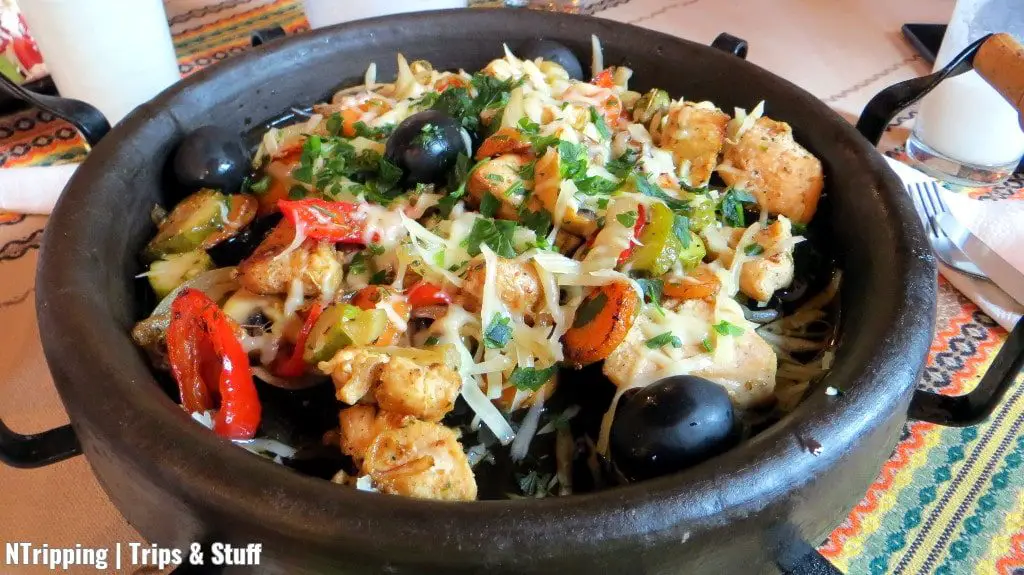
When traveling, you should know what to order at your table. For that reason, below you’ll find the most important facts about the Bulgarian cuisine.
- Bulgarian cuisine is the most delicious food you’ve never tried! Travelers compare it to the more famous Greek, Turkish, and Mediterranean cuisines. However, the traditional Bulgarian dishes incorporate such extraordinary taste fusions that you’ll never want to leave the table.
- Bulgaria is one of the biggest wine producers in the world. Wine production has a long-lasting history in the Bulgarian lands, dating back to the Thracians. In the 1980s, Bulgaria was the second biggest wine exporter worldwide.
- Yogurt plays a significant role in Bulgarian cuisine. The name, which Bulgarians use for yogurt, literally translates to “sour milk”. It has an extraordinary flavor and health benefits. The reason for this was discovered in 1905. The prominent Bulgarian microbiologist, Stamen Grigorov, identified the bacillus responsible for turning milk into yogurt in Bulgaria. As a sign of recognition, the science community called it Lactobacillus bulgaricus.
- White-brine cheese is an essential ingredient in the Bulgarian dishes. It’s used as a filling, whisked with eggs, in pastries, such as the delectable banitsa and tutmanik. White-brine cheese can also be stuffing for peppers and meatballs. The unique, salty taste of the cheese combines phenomenally with almost any fresh vegetable. Therefore, the tastiest salads are sprinkled with shredded white cheese.
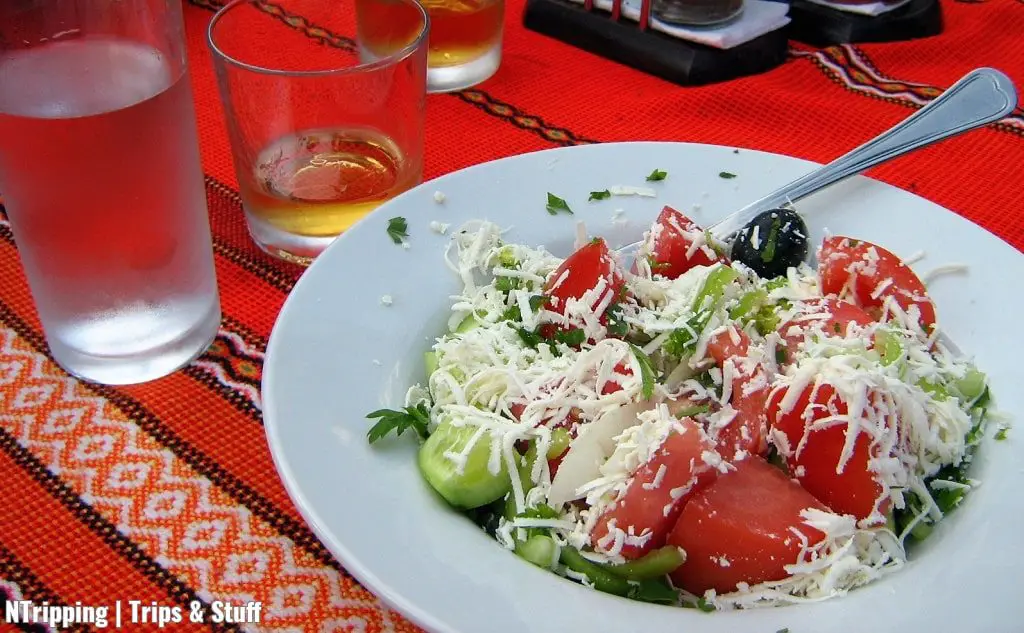
- Shopska Salad is the most famous Bulgarian salad. In neighboring countries, it’s widely known as Bulgarian salad. Maybe that’s because everybody in Bulgaria loves the combination of tomatoes, cucumbers, onions, peppers, and white-brine cheese, sprinkled with parsley. Or because the colors of the salad – white, green, and red – are the same as the colors of the Bulgarian flag.
- At the Christmas Eve table, the dishes are an odd number and are all vegan. Before Christmas, Bulgarian Christians fasten for 40 days. The Christmas Eve celebration is the culmination of the fasting. For that reason, all dishes at the table are plant-based.
- Bulgaria’s national alcoholic drink is rakia. The fiery beverage is a fruit brandy. Usually, it’s made out of grapes, but other variations incorporate plums, apricots, pears, or figs. Note that Bulgarians drink their rakia alongside their salad, as an aperitif.
- The healthiest drink to order in Bulgaria is water. The country’s mineral waters are not only good for soaking but healthy and delectable for drinking as well. Their low level of mineralization makes them perfect for daily use. Bulgarian towns, rich in mineral waters, such as Sofia, Velingrad, and Sapareva Banya, offer free water fountains in public areas.
Historical Facts About Bulgaria
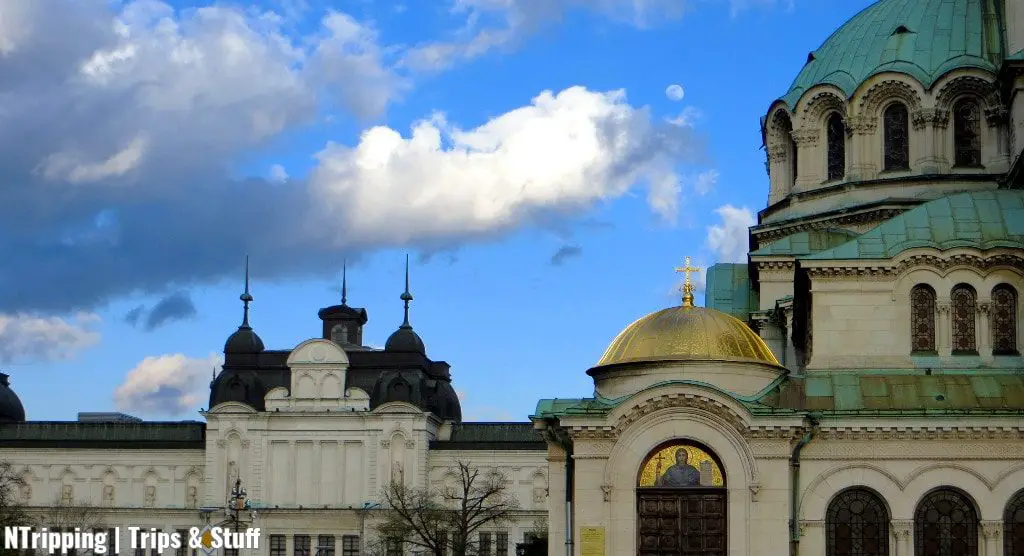
Bulgaria boasts more than 13 centuries of history. But the Bulgarian lands have been inhabited even before the country was founded. In this section, you’ll find the most interesting historical facts about Bulgaria.
- Bulgaria is one of the oldest countries in Europe. Founded in 681, the country is also the only one on the continent that has never changed its name since its establishment.
- Plovdiv, Bulgaria is the oldest constantly inhabited city in Europe. That’s one of my favorite facts about Plovdiv. For most of its 8,000 years of history, Bulgaria’s second-largest city was known as Philipopolis. The Bulgarian capital Sofia is a close second with an estimated age of approximately 7,000 years. For comparison, Rome is about 2,800 years old and Athens was founded 6,000 years ago.
- The oldest golden treasure in the world was found in Varna, Bulgaria. In 1972, almost 300 graves were discovered in a necropolis in the coastal city’s industrial zone. The artifacts are dated back to 4600 – 4200 BC. The treasure consists of a total of 3,000 items and weighs 6 kg / 13.23 lbs. You can admire the intricate gold, copper, and pottery items at the National Historical Museum in Sofia and the Varna Archaeological Museum.
- The Bulgarian Orthodox Church is the oldest Slavic Orthodox Church. It was recognized as an independent church in 870 AD. This happened only several years after Christianity became the country’s official religion. This is definitely among the most interesting facts about Bulgaria for history buffs.
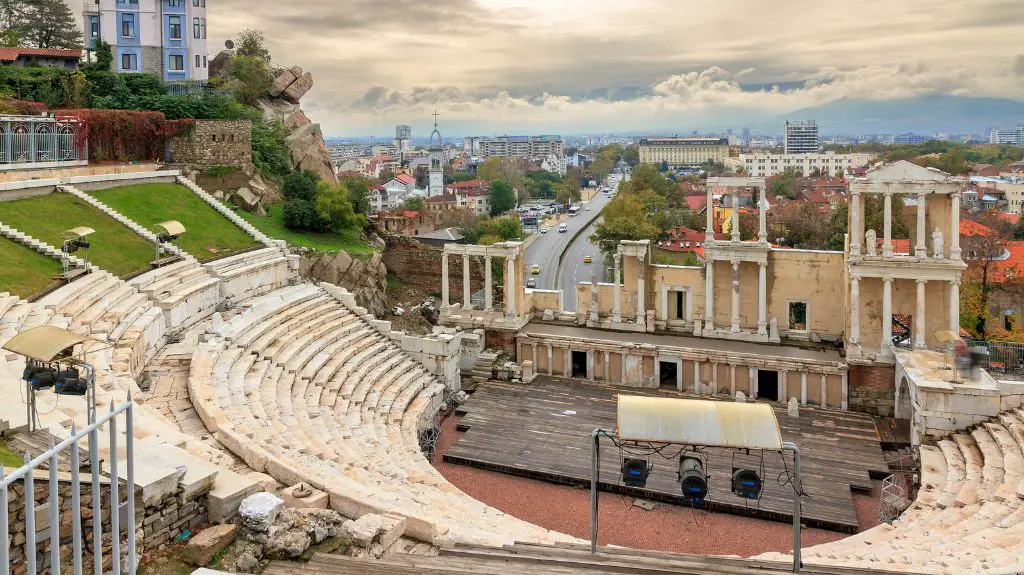
- Before falling under Ottoman rule, Bulgaria had more than double its current area. Three seas washed its borders – the Aegean Sea, the Adriatic Sea, and the Black Sea.
- The Bulgarian Army has never lost a battle. A Bulgarian flag was never captured during a battle. Unfortunately, the army has also never won a war. However, this is due to the incompetence of the Bulgarian politicians, not the army commanders.
- Bulgaria is the only country in the world, which saved its Jews during World War II. Despite the fact, that the country was on the German side, no Jew was ever transported to a concentration camp.
- The Bulgarian flag consists of three bands of equal size, white, green, and red, positioned horizontally from top to bottom. The white is a symbol of peace, the green represents the wonderful nature, and the red is the blood soaked into our lands.
Facts About Famous Bulgarians
You can’t know a country without knowing its people. These facts about famous Bulgarians will make you understand and appreciate the country.
- The Thracian hero Spartacus was born in the Bulgarian lands. He was a military leader, whom the Romans enslaved. Together with other escaped slaves, he started an uprising and a war against the Roman Republic.
- Another Thracian, born on Bulgarian soil, was Orpheus. He was one of the most famous ancient musicians. It is believed that he possessed the power to tame animals by playing enchanting melodies on his instrument.
- The Bulgarian wrestler and martial arts fighter Dan Kolov participated in a record number of matches. During his career, he fought a record-setting 1,500 matches. Out of them, he only lost three official fights. Among his accomplishments are winning the Diamond Belt World Heavyweight Championship twice, winning the European Heavyweight Championship three times, as well as dominating countless tournaments in Japan, Brazil, and the USA.
- A Bulgarian inventor is one of the fathers of modern-day computers. The American-Bulgarian physicist John Vincent Atanasoff is credited with the invention of the first electronic digital computer. His machine was named the Atanasoff–Berry Computer.
- The women’s high jump world record belonged to the Bulgarian athlete Stefka Kostadinova for 37 years. At the 1987 World Championship in Rome, the then 22-year-old jumped the sensational 2.09 m (6.86 ft.). This was her third time breaking the world record. It took almost 37 years to break her sensational achievement.
- Another world-record Bulgarian athlete is Yordanka Donkova. She competed in 100-meter hurdles. During her exceptional career, she corrected the world record in this discipline the whooping five times. Her last record from 1988 stood for 28 years, until 2016.
- Hristo Stoitchkov is regarded as one of the best football players of his generation. The former FC Barcelona striker was twice a runner-up for the FIFA World Player of the Year award (1992 and 1994). In 1994, he received the Golden Ball award after leading the Bulgarian National Football team to fourth place in the World Cup Finals in the USA. In 2004, Pelé included Stoitchov in the FIFA 100 List of the World’s Greatest Living Players.
- Bulgaria has two astronauts who have flown in space. While much bigger countries have never even launched their space programs, two Bulgarian cosmonauts have already left the Earth’s atmosphere. Georgi Ivanov was launched into space in 1979 and spent almost two full days on board Soyuz 33. In 1988, Aleksandr Aleksandrov left Earth to become the second Bulgarian cosmonaut and the first to reach a Soviet space station.
Facts About Bulgaria’s Culture and Traditions
Every country has its peculiarities. So does Bulgaria. Here are some facts about Bulgaria’s customs and traditions:
- Bulgarian folklore music is referred to as “the eighth miracle”. To prove this fact, the song Izlel e Delyo Haidutin, performed by the Bulgarian singer Valya Balkanska, was sent into space on board the probe Voyager 1 as a message to alien civilizations. That’s one of the Bulgarian facts I’m most proud of.
- The biggest religious holiday in Bulgaria is Easter. While Christmas is the biggest holiday for Catholic Christians, for Eastern Orthodox Christians, hence also for Bulgarians, the biggest religious holiday is Easter. Isn’t that one of the most peculiar facts about Bulgaria?
- A Bulgarian tradition involves jumping into freezing waters. On January 6th, the celebration of Saint Joan and the Epiphany, Bulgaria celebrates Yordanovden. The custom involves a priest, throwing a cross into the freezing waters of a river or a lake. Single men jump in to retrieve the cross. The brave man who pulls the cross out of the water is believed to be rewarded with health and happiness.
- The Bulgarian carnival games are quite scary. In the winter months, in villages and towns throughout Bulgaria, groups of men, women, and children dress in peculiar costumes. They are called kukeri. Decorated with heavy bells, huge hats, and scary masks, they dance and make deafening noises. Their goal is to scare evil spirits away and bring a good harvest.
- Bulgarians celebrate wine, not love. On February 14th, while the rest of the (Christian) world celebrates Valentine’s Day, Bulgarians celebrate Trifon Zarezan. He is the patron of vine growers and wine producers. For me, this is one of the quirkiest facts about Bulgaria.
- Bulgarians welcome spring with Baba Marta. Every year on March 1st, we exchange martenitsi. The red and white woolen bracelets, necklaces, and little figures are a symbol of good health and prosperity. You should wear your martenitsa until you see a stork, a swallow, or a blossoming tree. In other words, until you notice the signs of the arrival of spring. Afterward, you should tie your martenitsa to a fruit tree for a good harvest.
- A Bulgarian dance involves walking barefoot on embers. In the mountainous parts of Bulgaria near the borders with Turkey and Greece, locals still practice a ritual called nestinarstvo. Men and women enter a state of trance, then walk and dance barefoot on burning ashes.
- Bulgaria is one of only three countries to use the bagpipe as a traditional musical instrument. The other two are Ireland and Scotland. Known as gaida in Bulgarian, the bagpipe is made of the skin of a lamb or a goat.
- The traditional Bulgarian dance is called horo. It’s a line dance performed at every celebration. If you want to impress your Bulgarian friends, join hands and try to learn the steps. Note that every region of the country prides itself on its traditional horo dance. The steps to some of the variations are quite difficult, even for locals. I admit I’ve only ever learned the steps to about ten hora.
How Many Interesting Facts About Bulgaria Did You Know?

This wraps up the list of 55 fun and interesting facts about Bulgaria.
These are the things I believe make Bulgaria such a unique travel destination.
And if these facts have sparked your curiosity to pack your bags and visit our country, check out my other posts about Bulgaria as well!
Now, I’m curious:
Which of the facts about Bulgaria amazed you the most?
Let me know in the comments below!
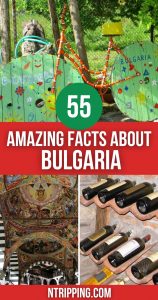
I truly enjoyed reading these facts, N! I bet it took you a while to compile all of them in such a comprehensive list. Makes me proud I am a Bulgarian. Thank you!
Thank you for your kind words, Svet!
It doesn’t matter how much time one spends when it comes to showing the world how incredible your home country is :)
Happy travels!
Agreed, N!
Happy travels to you, too!
So useful, interesting and nice article! :)) Thank you for creating it! All foreigners should read it!
Thank you for your kind words, Ika!
Cheers, N.
Having realised I knew nothing about Bulgaria, I thoroughly enjoyed reading this.
Glad you did, Sally!
Btw, if you enjoy reading cool facts about travel destinations, I recommend you check my other project, https://33traveltips.com. Lots of great articles there, too :)
Cheers!